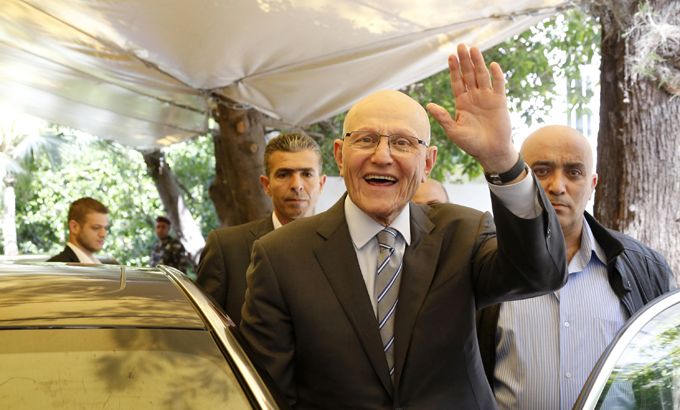Lebanese PM unveils national unity cabinet
Government formed after 10 months of stalemate due to deep divisions, mostly over Syria’s civil war.

Lebanon’s Prime Minister Tammam Salam has formed a national unity government, more than 10 months after he became prime minister.
The 24-member government, announced on Saturday, unites the powerful Shia political party Hezbollah and its allies with the Sunni-led bloc of former Prime Minister Saad Hariri for the first time in three years.
Salam was unable to form a cabinet until now because of deep divisions among Lebanese political groups, mostly over the civil war in neighbouring Syria.
“After 10 months of efforts, of patience, a government protecting the national interest is born,” the AFP news agency quoted the prime minister as saying.
“It is a unifying government and the best formula to allow Lebanon to confront challenges,” said Salam, who was tasked with forming the government back in April 2013 after the resignation of his predecessor, Najib Mikati.
Portfolios divided
Hezbollah is allied with Syria’s President Bashar al-Assad and has dispatched fighters to bolster his regime in its fight against rebels.
Hariri is a fierce opponent of the government in Damascus and backs the Sunni-led uprising against Assad.
Saturday’s compromise is intended to ensure neither the Hezbollah nor the Hariri bloc has veto power over the other.
It divides the 24 portfolios into three groups, with Hezbollah and Hariri’s blocs each taking eight ministries, and the final eight going to candidates considered to be neutral.
Naim Salem, professor at Notre Dame University in Lebanon, told Al Jazeera that Hezoballah’s ally, General Michel Aoun, of the Free Patriotic Movement, was the biggest winner in this formation. “He got both the foreign and energy ministers,” he explained.
To preserve the delicate balance between the country’s 18 sects, the government is also equally divided between Christian and Muslim representatives.
Clashes between opponents and supporters of the Syrian regime have killed scores of Lebanese over the past months. A wave of car bombs also claimed the lives of dozens.
Salam said he hoped the new government would allow Lebanon to hold presidential elections before President Michel Suleiman’s mandate expires in May and finally conduct parliamentary polls that were postponed last year due to the political impasse.
“This cabinet today has raised the stocks of General Aoun, of him getting the presidency,” said Naim Salem. “If this compromise continues, between General Aoun and Saad al-Hariri, then we can expect a new presidency. Otherwise, we will face another stalemate.”
Among the top posts announced, Reuters reported that former Energy Minister Gebran Bassil, from the Hezbollah-dominated March 8 bloc, was named foreign minister. Former Health Minister Ali Hassan Khalil, also from March 8, takes the finance portfolio. Nouhad Machnouk, a legislator of the March 14 bloc, led by Hariri’s Future party, was named interior minister.